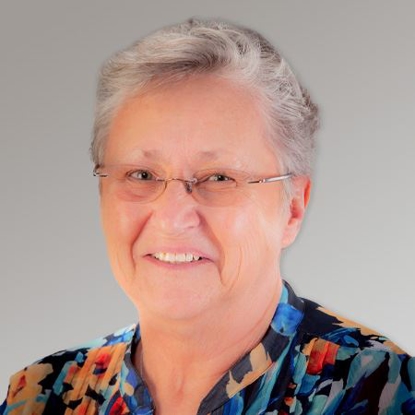
How Common Is Dual Diagnosis?
According to Medline Plus, “about half of people who have a mental disorder will also have a substance use disorder at some point in their lives and vice versa.” In 2019, approximately 9.5 million U.S. adults experienced a mental illness and substance use disorder at the same time. Common risk factors, such as genetics, stress, and trauma, contribute to both substance use and mental health disorders.
Unfortunately, many people with dual diagnoses never receive help. A recent federal report conducted by the Government Accountability Office (GOA) found that 57 million American adults have an addiction disorder or mental health condition, but the vast majority go untreated. Nearly 40 million of these individuals never receive any treatment. Further research from the Substance Abuse and Mental Health Services Administration (SAMHSA) found more than 80% of the 2017 survey respondents who reported a mental health or addiction problem said they did not perceive a need for treatment.
The SAMHSA survey inquired reasons why respondents did not seek mental health care, and reasons said the cost was too high, or they didn’t want to be stigmatized for seeking psychiatric care, or claimed they had no access to mental health treatment.
Further data compiled from the survey found these results:
- 18.7 million people reported having a substance abuse disorder, but only 9% of them received addiction treatment.
- Of the 11.2 million people with serious mental illness, only about one-third received psychiatric treatment.

Working To Make Your Recovery Affordable By Accepting Most Insurances
Do not be discouraged if you are not seeing your insurance provider listed on our website. We take many types of insurance! Call Today: (844) 292-5010
-
 In-Network: BCBS
In-Network: BCBS -
 In-Network: Aetna
In-Network: Aetna -
 In-Network: Tricare
In-Network: Tricare -
 In-Network: Cigna
In-Network: Cigna -
 Proudly Caring for Veterans
Proudly Caring for Veterans -
 In-Network: Carelon
In-Network: Carelon -
 In-Network: MultiPlan
In-Network: MultiPlan -
 In-Network: HMC
In-Network: HMC
Dual Diagnosis Treatment Center in Prescott, AZ
Compassionately Addressing Co-Occurring Addiction and Mental Health Disorders
At Decision Point Center, we understand that addiction generally doesn’t develop on its own. Many people suffer from mental illness and use drugs and alcohol as a way to self-medicate and alleviate their symptoms. Unfortunately, using substances to cope only offers temporary relief and tends to make the symptoms of mental illness worse. Nevertheless, one problem does not always cause the other. Dual diagnoses, also called co-occurring disorders, occur whenever you have a substance abuse disorder and a mental illness at the same time.
For those facing a dual diagnosis, we provide psychiatry as well as therapies and treatments that address both physical and mental health. We not only focus on helping you get sober but also making sure that you are coping with your mental illness in healthy and appropriate ways. This is called “integrated intervention,” and it is based around your needs and enacted through a personalized treatment plan.
Recommended Reading
- What Mental Health Awareness Month Looks Like in 2020
- COVID-19 Affects Mental Health, Leads to Increase in Addictive Prescriptions
When you choose Decision Point Center, we will uncover how one condition affects another and develop a plan that works for you. To discuss your situation, please call us at (844) 292-5010 today.
Conditions We Treat
In addition to helping you get and stay sober, our team can help you treat several mental health conditions. Our treatments address:
- Depression
- Bipolar disorder
- Generalized anxiety disorder (GAD)
- Panic disorder
- Obsessive-compulsive disorder (OCD)
- Child and adult trauma
- Post-traumatic stress disorder (PTSD)
- Borderline personality disorder
- Attention deficit disorder (ADD)
- Attention deficit hyperactive disorder (ADHD)

Real Clients. Real Recoveries.
-
“Thank you for helping me navigate through one of the most difficult times in my life. I really attribute my experience while in your care to saving my life and career.”- Phil O.
-
“Doug and Wade really helped me and my loved ones through a tough time.”- J.C.
-
“Steve in admissions was extremely helpful for our family as we tried to choose a program recently.”- Paula A.
-
“Decision Point was different from the beginning. A team approach from professionals who care.”- Candace
-
“Thank you for helping me be a better person. Doug and Wade really helped me and my loved ones through a tough time.”- JD
-
“The moment I was in their hands, my transformation began. They actually cared. They actually WANTED to help me. I wasn't just another paycheck to them. They asked questions. They made a plan for me. And they followed it to the T.”- Amber B.
-
“THIS MAN MOVED MOUNTAINS to literally help save her!”- Corin C.
-
This facility deserves a special recognition. They have been around for years but the services they provide and the recovery that comes out of their facility, only seem to grow over the years. I have worked with Stephen from the admissions department and he has always gone above and beyond to make sure clients feel comfortable and get the care they need. I definitely recommend Decision Point Center!!!!- Ashley B.

We Understand You May Have Questions
Let Us Provide You With Answer
-
Do You Offer Wilderness Therapy And How Does It Work?While we do not offer Wilderness Therapy, we do offer outdoor and recreational therapy incorporating hiking, and backpacking to challenge individuals to become the confident person they know they can be. This helps with identifying internal behavior patterns, beliefs, emotions, and core issues, while providing opportunities for learning in the areas of leadership, communication, and problem-solving skills.
-
Does Decision Point Center accept insurance?Yes! Decision Point Center works with many types of insurance to make treatment affordable for clients. Currently, Decision Point Center is in-network with BCBS, Humana, Cigna, PHCS, HMC Healthworks, Beacon Health Options, Tri-care, and Shasta. Decision Point Center also works with most PPO insurance companies.
-
How Does Decision Point Determine My Treatment Plan?You are unique. Our commitment to, “You-based” treatment is at the forefront of what we do. Through one of the most comprehensive assessments in the treatment world today, we create, tweak, and refine your plan to provide a treatment experience uniquely tailored to your strengths, weaknesses and condition.
-
What If The 12 Steps Aren't My Cup of Tea?No problem. The 12 Steps is just one of many tools available to us at Decision Point and we firmly believe in finding the tools that best suit the individual. We’ll expose you to the 12 Steps of A.A. the way they were meant to be presented, but we’ll also introduce you to solid therapeutic alternatives if you desire.



Meet Our Dedicated Team
-
 Mary Ann Zuppardo Executive Director
Mary Ann Zuppardo Executive Director -
 Dr. Terry Vaughan Medical Director, Psychiatrist
Dr. Terry Vaughan Medical Director, Psychiatrist -
 Stephen Leza Director of Admissions & Business Development
Stephen Leza Director of Admissions & Business Development -
 Lindy Howard, MA, LPC Clinical Director
Lindy Howard, MA, LPC Clinical Director -
 Luke Bailey Director of Compliance
Luke Bailey Director of Compliance -
 Deborah Pallett, P.A. Physician Assistant
Deborah Pallett, P.A. Physician Assistant -
 Dr. Julia L. Summers, LPC DBT Therapist
Dr. Julia L. Summers, LPC DBT Therapist -
 Douglas Winter MS, LISAC, CSAT Primary Therapist
Douglas Winter MS, LISAC, CSAT Primary Therapist -
 Mark Branson, MA, LPC, NCC Trauma Therapist
Mark Branson, MA, LPC, NCC Trauma Therapist -
 Troy Trout Outdoor Activity Coordinator
Troy Trout Outdoor Activity Coordinator





















